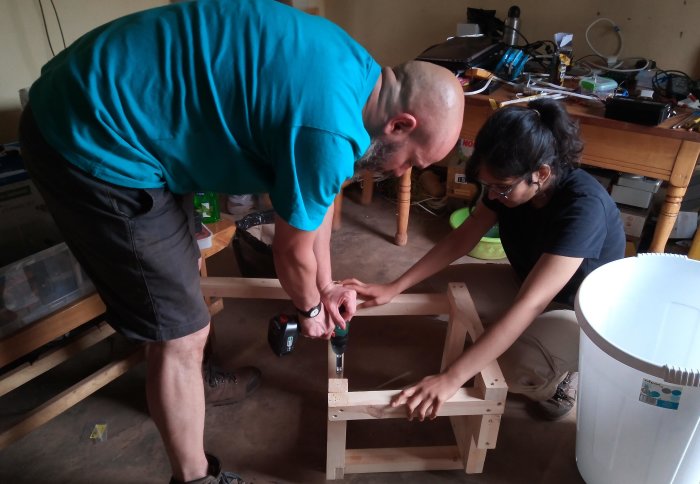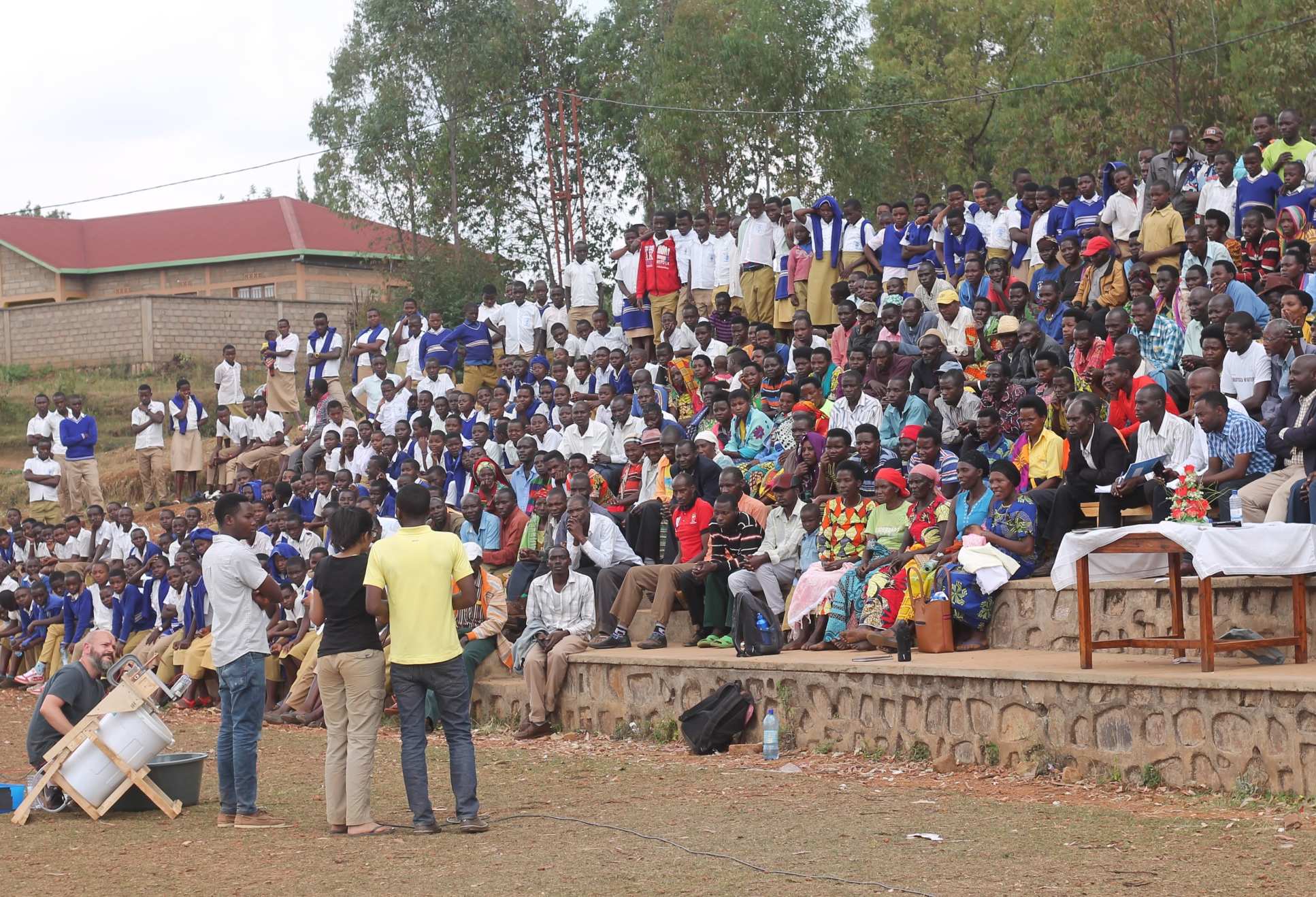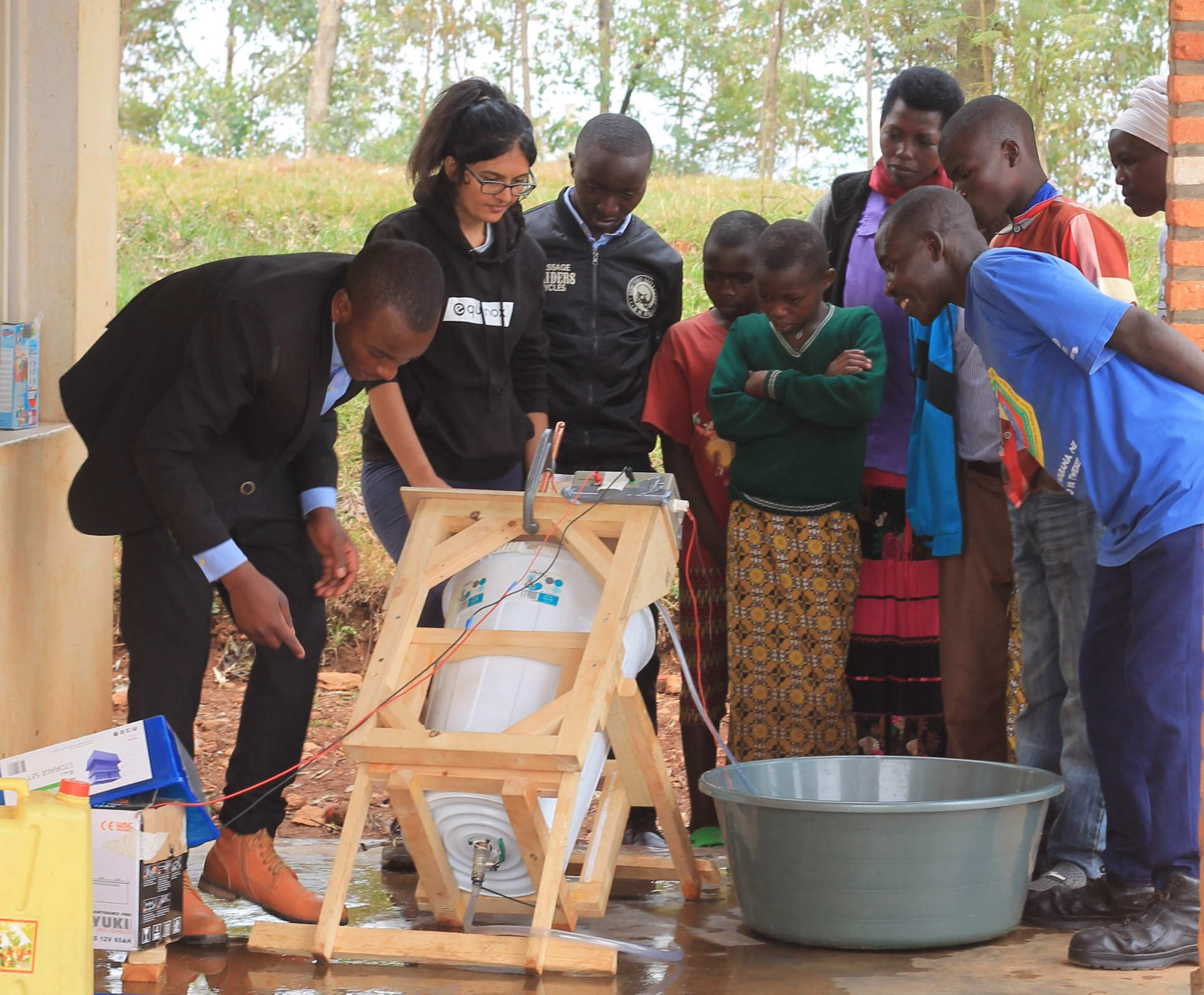Students develop off-grid washing machine for rural Rwanda

Aslan and Aakeen working on the prototype
This summer, a Mech Eng team travelled to Rwanda to test an off-grid washing machine developed by student-led initiative e.quinox.
PhD student Aakeen Parikh made the journey with Workshop Technician Aslan Kutlay to gather feedback on the prototype in a rural African community.
The project is run by e.quinox, an engineering design organisation led by Imperial students. Its aim is finding sustainable technology solutions for developing countries and turning them into viable business models. The organisation’s most successful initiative, a solar-powered energy kiosk, was the starting point for BBOXX, a spinout company which recently secured £40m funding from investors including Mitsubishi Corporation.

The washing machine is designed for rural communities without access to electricity. Its aim is not just to reduce the effort needed to wash clothes, but also to address time poverty. Aakeen explains: “We wanted an automated solution that liberates people from having to be there and operate it. This burden usually falls on women, which means the product can also have a positive social impact.”
Aakeen, who leads the washing machine project, has been part of e.quinox since 2014, when she began her undergraduate studies in Mechanical Engineering at Imperial; this year she is starting a PhD in the Turbochargers research group with Professor Ricardo Martinez-Botas. The cross-departmental project team includes other Mechanical Engineering students (Shreya Basu and Shivam Dubey) and received support from many people in our department, including Workshop Technician Aslan Kutlay, who volunteered to join the trip to Rwanda.

The battery-powered prototype was made with affordable materials such as wood and plastic, and off-the-shelf components in the Imperial workshops. Some of its processes are semi-manual, but the goal for the final product is to be fully automated. The project team worked for ten weeks over the summer to achieve a minimum viable product for testing.
Aakeen and Aslan travelled to a Rwandan rural community where e.quinox projects have been based for the past ten years. The feedback received after three weeks of try-outs was positive: “It was encouraging to find out that people saw it as a beneficial product in their house, and that there is a real need for something like this”, said Aakeen. The main challenge that emerged out of the trials was cost: "We asked people how much they could pay for the machine, and the average was £20-£60, so now we have to aim to make it for that price."

After the trip to Rwanda, the team has many ideas on how to take the project forward. They hope to continue improving it, and eventually to produce the washing machines in a sustainable plant in Rwanda that will support the local economy.
Article text (excluding photos or graphics) © Imperial College London.
Photos and graphics subject to third party copyright used with permission or © Imperial College London.
Reporter
Press Office
Communications and Public Affairs
- Email: press.office@imperial.ac.uk
